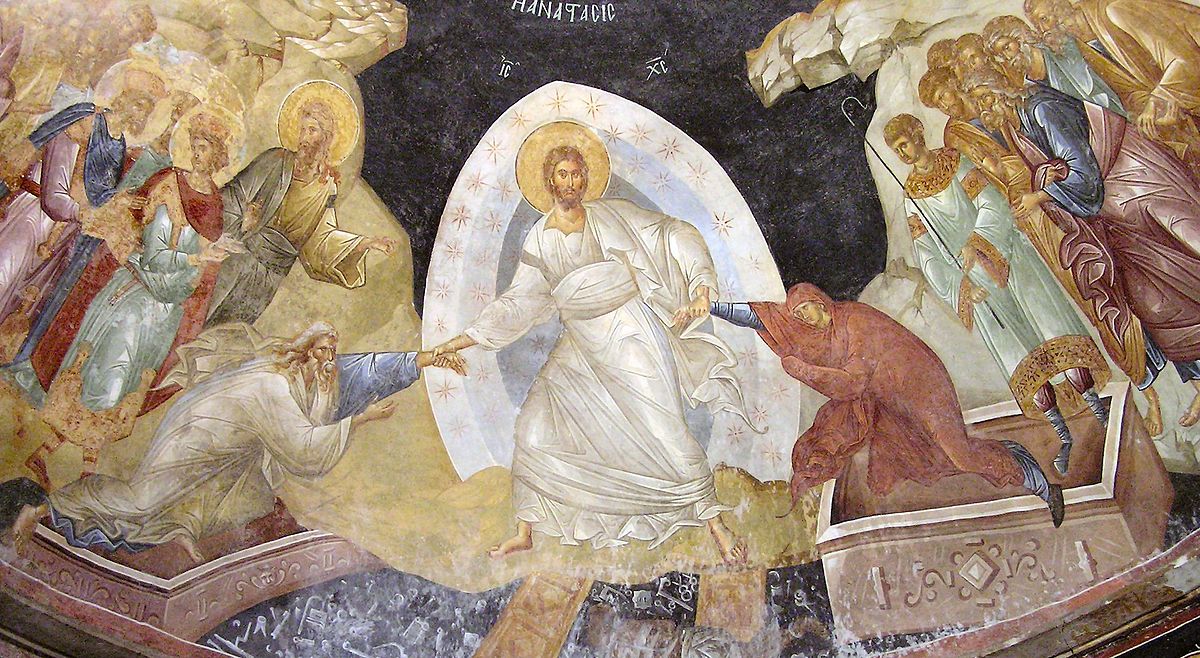So there is authority beyond the Torah. Thank you. That is the point that I was getting at. You trust sources beyond the Torah, and I am going to ask you now which sources are these and why are these inspired works meriting our trust?
It is something which is hard to pin down, but I am in agreement there.
And how would one obtain reliable information about this person of Christ? That is my challenge to you. You say there cannot be an authority on God outside the Torah, and yet you admit other later books provide insights.
Why exclude the New Testament, as an authoritative source on the life and death of Christ?
Why exclude the New Testament, as an authoritative source on the life and death of Christ?
 .
.On a case by case basis, compare each work for its merit and its relation to the Torah, which is the ultimate source. Anything which disagrees with the Torah is flat out, out of there. Anything which does not disagree with the Torah may be divinely inspired, but not necessarily. Disproving legitimacy is far easier then proving legitimacy.
The NT is an authoritative source for Christians because you believe that later texts do not need to report ultimate accountability to the Torah. We do.
My point was really irrelevant as to where one submits the case. Is temptation the same as coercion?
If you are going to charge anyone with a crime that assumes they are in fact responsible for their actions and that free will exists. I agree this is a difficult question, but it is impossible for free will to exist from our perspective only, either it does or it doesn't.
I did not say that. Where does Christ teach that murder and theft are ok? Christians have always acted contrary to the teachings of Christ, and this did not begin in 500 nor has it ended in 1800.
However, if we are to hold Christians personally responsible for their actions, then it makes little sense to blame their religion for their actions as you have done so here. Yes it is a poor reflection on Christ, but it does not change the fact that Christ teaches us to love our enemies, to give to the one who needs, and first and foremost, to love our neighbour as we would love ourselves.
However, if we are to hold Christians personally responsible for their actions, then it makes little sense to blame their religion for their actions as you have done so here. Yes it is a poor reflection on Christ, but it does not change the fact that Christ teaches us to love our enemies, to give to the one who needs, and first and foremost, to love our neighbour as we would love ourselves.
To Jews, faith if stupid. Faith is stupid because faith is a “mystical feeling” and to a Jew, you could just as easily have a “mystical feeling” aka faith about a carved piece of wood if you were taught to. Faith is not only stupid to Jews but a danger because since you can have faith in anything, faith might lead you astray from G-D.
I say you should open your eyes some. There are Jews who take the opposite position to you on this issue.
This is another *FUNDAMENTAL* difference between Jews and Christians. Our religions are not similar. We may share enough in common to live peacefully as neighbors and our religions are different, this is not necessarily a bad thing, but we are very different.
You seem rather devoted to restating that case over and over.
Yet you have studiously avoided the Ten Commandments.
Civilization is a hell of a lot older then Greece, even older then the “first” Sumerian city states.
True, but we are talking about WESTERN civilisation here.
Heard of hamurabi’s code? Prohibitions on theft, on murder? Civilization was old before Jews were on the scene and prohibitions on murder and theft of equals, just as old. If you look to Judaism and Christianity as a common cause for our moral prohibitions, you’d have to look further back to where they got theirs from.
So you deny that Moses received the Law from God, and that the Israelites simply made up their own moral code as an updating on what people around them had already taught?
“Christians” did not ban slavery, economic pressures, banned slavery in the most of the world. Slavery was always justified with religion. Its banning was justified with the fact it was no longer profitable.
I suggest you go read William Wilberforce. The economic interests were AGAINST him and in favour of the use of slave labour, always have and always will be.
His argument is that they are persons no different from you or I, and that it is wrong and an affront to God to treat them as slaves.
So am I. I am speaking of slavery banned throughout the British Empire. And yes it was Christians practicing Christians who pushed through the ban.
Read up on Wilberforce if you don't believe me.
Read up on Wilberforce if you don't believe me.
Horse hockey. Christians say that Easter is about the death and resurrection of christ.
Shouldn't they get to decide what their own celebration is about? Look, I could call Pesach a pagan spring festival but I did not and I will not. I expect the same respect from you regarding Christian traditions as I have accorded to Jewish Traditions.
Shouldn't they get to decide what their own celebration is about? Look, I could call Pesach a pagan spring festival but I did not and I will not. I expect the same respect from you regarding Christian traditions as I have accorded to Jewish Traditions.
Many of the practices associated with Christianity are demonstratably inherited from Pagan holidays, even the date was. The name “Easter” is the name of a Pagan holiday(I don’t have the history available, the name is a bit modified-I’m sure someone can look it up… I bet wikipedia has it).
Pesach really is *NOT* a Pagan festival heh. It has not inherited any practices from any pagan festivals, nor does it even share the same date as any.
This is not meant to be a case of slandering Christians(and I’ve slandered Judaism as being untrue plenty in this thread) but of historical analysis. Easter is a pagan holiday the early church morphed into a Christian one to win converts. Christianity is filled with similar such things…. Christsmas, Halloween?
Who says it is a usurped pagan festival? Just because it takes place in the spring?
Again, the same sword cuts through Pesach, if the date is the only thing.
Again, the same sword cuts through Pesach, if the date is the only thing.
Christ submitted himself to the authorities, the Romans who crucified him and the Jews who turned him to the Romans so that he might be crucified.
Yet you say what Christ did was taboo?
Yet you say what Christ did was taboo?
Note I took you to task for insulting Christians by saying that Christ teaches that murder and theft is good.
So it's ok to rob infidels because they are less then you. And you condemn Christians for slavery? Interesting perspective Ves.
I’ll get the sources as I promised and see if I can stop off at the library on my way home to pick up anything by Wilberforce.
Shalom!



Comment